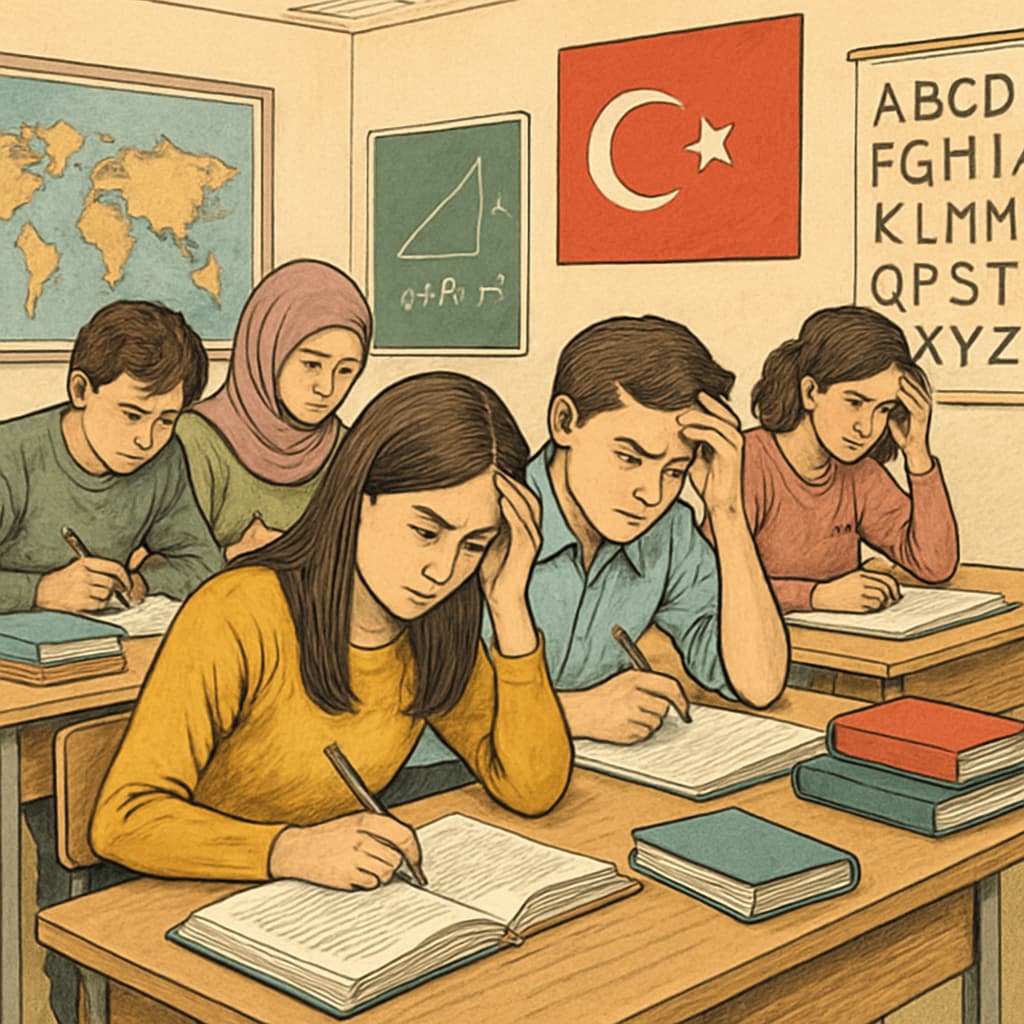Turkey’s education system has long been defined by a centralized exam-oriented structure, which creates immense exam pressure on students. In contrast, the UK’s A Levels system emphasizes student choice and flexibility, allowing learners to focus on areas of interest. This comparison highlights the fundamental differences between the two and explores how Turkey could benefit from adopting elements of the UK system to promote more balanced student development.
Rigid vs Flexible: The Core Difference Between Turkey and the UK
Turkey’s centralized education system revolves around mandatory high-stakes exams, such as the Higher Education Examination (YKS). These exams determine university placement and assess students across a wide range of subjects, regardless of their individual strengths or career aspirations. As a result, students often experience extreme stress and feel constrained by the lack of choice in their academic journey.
On the other hand, the UK’s A Levels allow students to select three to four subjects tailored to their interests and future goals. This flexibility fosters a deeper understanding of chosen fields and reduces unnecessary pressure. By granting students the autonomy to shape their education, the UK system encourages creativity and self-motivation.

Impact on Student Development: Exam Pressure vs Personalized Growth
The stress induced by Turkey’s exam-oriented system often leads to burnout and discourages holistic skill development. Students focus heavily on scoring high in exams, leaving little room for extracurricular activities or personal interests. Consequently, their education becomes narrowly focused on memorization rather than critical thinking or problem-solving skills.
In comparison, the UK’s A Levels system nurtures well-rounded individuals by allowing students to explore subjects they are passionate about. This targeted approach not only enhances academic performance but also equips students with transferable skills that are valuable in higher education and professional settings.

Reforming Turkey’s Education System: Lessons from the UK
To address the limitations of its current system, Turkey could consider implementing reforms inspired by the UK. These include:
- Introducing subject specialization: Allow students to focus on fewer subjects aligned with their interests and career aspirations.
- Promoting extracurricular activities: Create opportunities for students to engage in sports, arts, and community service, fostering holistic development.
- Shifting to continuous assessment: Replace single high-stakes exams with a combination of coursework, projects, and smaller exams throughout the academic year.
- Providing career guidance: Offer counseling to help students make informed decisions about their academic paths and future careers.
As a result, these reforms could reduce exam pressure, encourage lifelong learning, and prepare students for the challenges of the modern world. Turkey’s education system has the potential to evolve into one that values diversity in skills and interests, similar to the UK’s approach.
Conclusion: Bridging the Gap Between Restriction and Freedom
The comparison between Turkey’s exam-oriented system and the UK’s A Levels highlights the importance of flexibility and choice in education. By adopting elements of the UK model, Turkey can shift from a rigid structure to one that celebrates individual strengths and promotes balanced development. These changes will not only benefit students academically but also equip them with the skills needed to succeed in an ever-changing global landscape.
Education systems must evolve to meet the needs of students. Turkey’s opportunity to move from restriction to freedom lies in embracing reforms that prioritize student choice and holistic growth.
Readability guidance: The article uses clear and concise language, short paragraphs, and lists to summarize key points. Transition words such as “however,” “in addition,” and “for example” ensure a logical flow of ideas. The use of images enhances understanding of the contrasting education systems.


